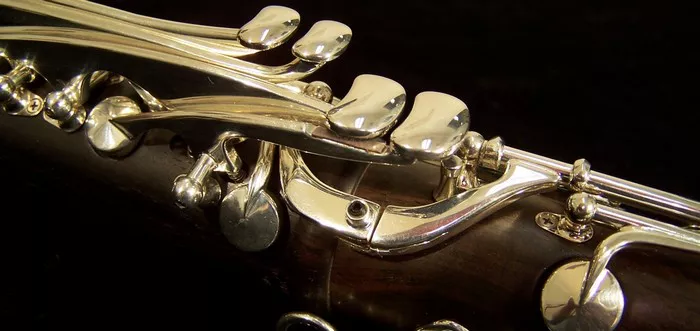The clarinet is a versatile instrument capable of traversing a wide range of musical genres, from classical to jazz and beyond. Its rich timbre and expressive qualities make it a favorite among musicians seeking to explore various styles of music. Whether played in a symphony orchestra, a chamber ensemble, or a jazz band, the clarinet offers endless possibilities for creative expression and musical innovation.
Can Clarinet Play Jazz?
Yes, the clarinet can indeed play jazz and has been a prominent instrument in the genre since its inception. In the early days of jazz, clarinetists such as Benny Goodman and Sidney Bechet helped popularize the instrument as a featured soloist in jazz ensembles. The clarinet’s ability to produce smooth, melodic lines and agile improvisations lends itself well to the improvisational nature of jazz music.
Exploring Jazz Styles on Clarinet
From traditional New Orleans jazz to bebop, swing, and beyond, the clarinet has played a significant role in shaping the sound of jazz music throughout its history. In New Orleans jazz, clarinetists often play a prominent role in front line ensembles, improvising lively melodies and engaging in spirited call-and-response exchanges with other musicians. In the swing era, clarinetists like Goodman and Artie Shaw became synonymous with the big band sound, showcasing their virtuosity through dazzling solos and intricate ensemble playing.
Techniques for Playing Jazz on Clarinet
Playing jazz on the clarinet requires a unique set of techniques and skills that differ from those used in classical music. While classical clarinetists focus on precision, control, and adherence to written notation, jazz clarinetists emphasize improvisation, rhythmic flexibility, and expressive phrasing. To excel in jazz playing, clarinetists must develop a strong sense of swing, mastery of blues scales and modes, and the ability to navigate chord changes with ease.
Advice for Jazz Clarinetists
If you’re interested in exploring jazz on the clarinet, here are some valuable tips to help you get started:
Listen to Jazz Recordings: Immerse yourself in the sounds of jazz by listening to recordings of legendary clarinetists and jazz ensembles. Pay attention to their tone, phrasing, and improvisational techniques, and use them as inspiration for your own playing.
Study Jazz Theory: Gain a solid understanding of jazz theory, including chord progressions, scales, and improvisational concepts. Practice playing along with jazz standards and backing tracks to develop your improvisational skills and musical vocabulary.
Experiment with Articulation: Experiment with different articulation techniques such as staccato, legato, and tonguing to create a variety of textures and effects in your playing. Focus on achieving a smooth, connected sound while maintaining a sense of rhythmic groove.
Develop Ear Training: Train your ear to recognize chord changes, melodic motifs, and rhythmic patterns commonly found in jazz music. Practice transcribing solos by ear and analyzing them to gain insight into improvisational techniques and phrasing.
Collaborate with Other Musicians: Seek out opportunities to jam and perform with other jazz musicians, whether in small combos or big bands. Collaborating with fellow musicians will help you refine your ensemble playing skills and expand your musical horizons.
Stay Open-Minded and Creative: Jazz is a genre that encourages experimentation and individual expression. Don’t be afraid to take risks and explore new ideas in your playing. Stay open-minded, embrace the spirit of improvisation, and let your creativity shine through in your music.
Conclusion
In conclusion, the clarinet is well-suited for playing jazz and has been an integral part of the genre for generations. Whether you’re drawn to the swinging melodies of the big band era or the improvisational freedom of modern jazz, the clarinet offers endless opportunities for exploration and artistic expression. By studying jazz theory, honing your improvisational skills, and collaborating with other musicians, you can unlock the full potential of the clarinet as a versatile and dynamic instrument in the world of jazz music.


